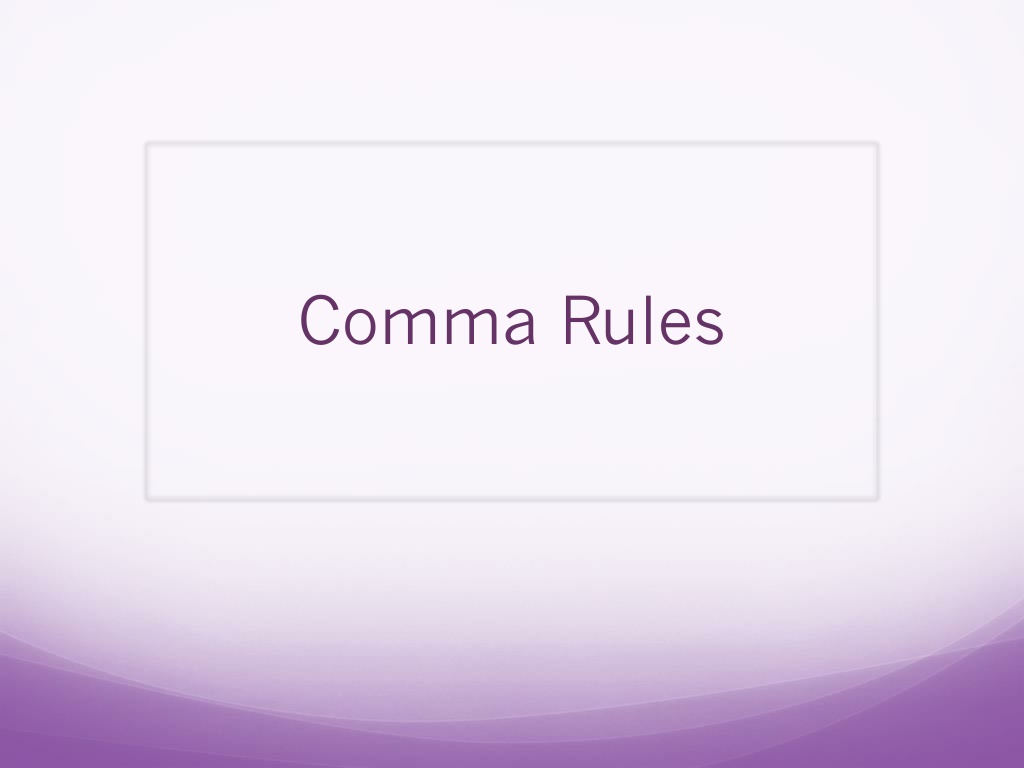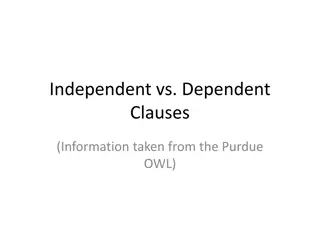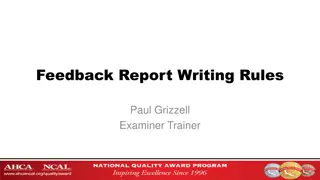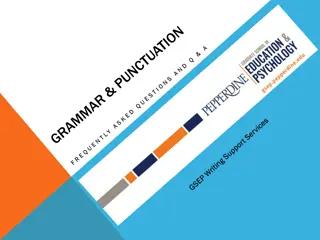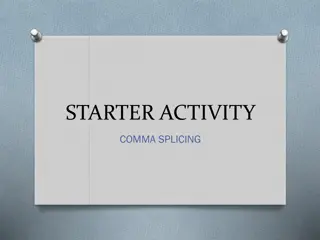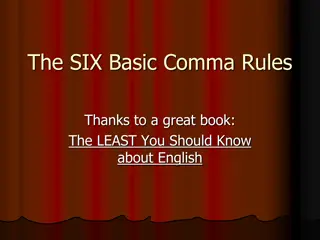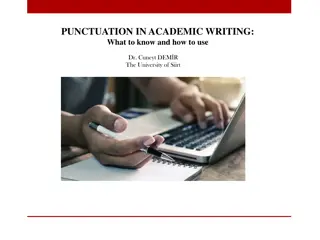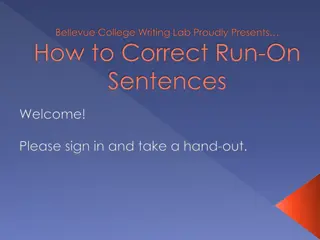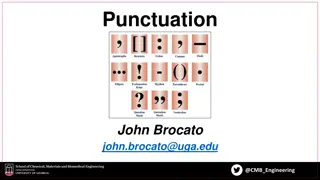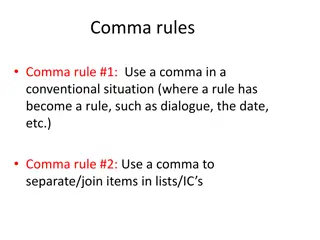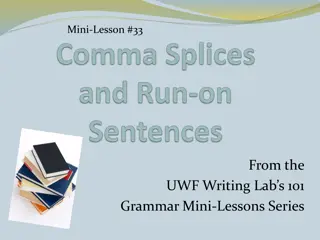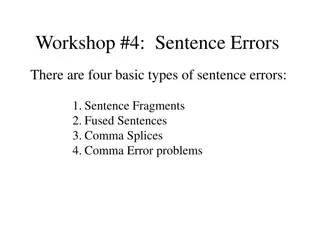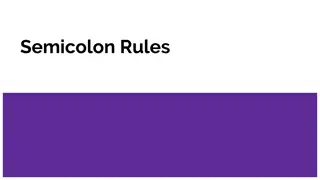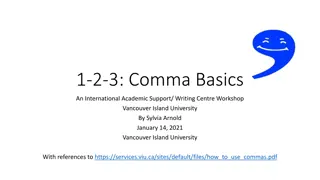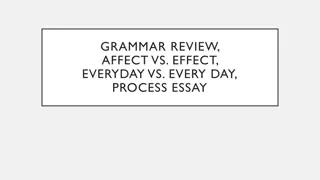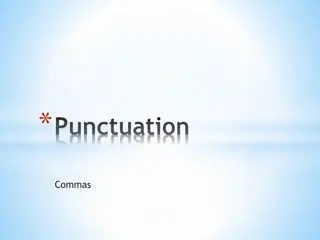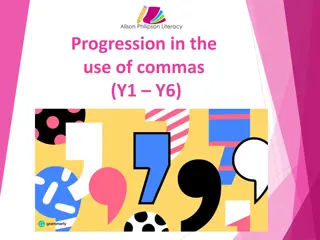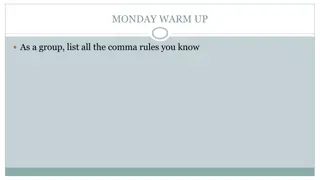Mastering Comma Rules for Effective Writing
Learn essential comma rules for proper punctuation: separate items in a series, adjectives, conjunctions, introductory words or phrases, clauses, and nonessential elements. Understand when to use commas to enhance clarity and coherence in your writing.
Download Presentation

Please find below an Image/Link to download the presentation.
The content on the website is provided AS IS for your information and personal use only. It may not be sold, licensed, or shared on other websites without obtaining consent from the author.If you encounter any issues during the download, it is possible that the publisher has removed the file from their server.
You are allowed to download the files provided on this website for personal or commercial use, subject to the condition that they are used lawfully. All files are the property of their respective owners.
The content on the website is provided AS IS for your information and personal use only. It may not be sold, licensed, or shared on other websites without obtaining consent from the author.
E N D
Presentation Transcript
Rule #1 Use commas to separate three or more items in a series. I have my laptop, pens, and pencils in my backpack. They have taken a class, studied together, and prepared well.
Rule #2 Use a comma to separate two adjectives when the adjectives are interchangeable. He is a tall, lean man. The old, cranky cat is dying. Exception: We stayed at an expensive summer resort (no comma because the two adjectives are not interchangeable).
Rule #3 Place a comma before a coordinating conjunction that connects two independent clauses. Coordinating conjunctions = FANBOYS For, And, Nor, But, Or, Yet, So I wanted to stay up late, but I had school the next morning. He was late to class, so his teacher marked him as tardy.
Rule #4 Place a comma after an introductory word or phrase Common introductory words: however, meanwhile, still, furthermore Still, I do not believe the defendant is guilty. Furthermore, I could not believe he was convicted. Barking incessantly, Sparky woke up the whole neighborhood. Barking incessantly = introductory participle phrase describing Sparky
Rule #5 Use a comma after an introductory clause. Generally, an introductory clause starts with a subordinate conjunction and creates a dependent clause. Common subordinate conjunctions: After, although, as, while, when, until, before, because, if, since If you are not sure about this, let me know. After we went to the movies, we got dinner. Before the sun sets, I want to go for a walk.
However, a comma is unnecessary when the dependent clause comes at the end of the sentence. Let me know if you are not sure about this. We got dinner after the movie. I want to go for a walk before the sun sets.
Rule #6 Use commas to set off nonessential words, clauses, and phrases. Incorrect: Jill my sister shut the door. Correct: Jill, my sister, shut the door. (We can remove my sister from the sentence, and the sentence still maintains the same meaning.) Incorrect: Bill Clinton the 42ndpresident of the United States is 68 years old. Correct: Bill Clinton, the 42nd president of the United States, is 71 years old.
Lets Practice! The deserted blue house is falling apart. The deserted blue house is falling apart. Because we are young we act impulsively. Because we are young, we act impulsively. However I am still unhappy with the outcome. However, I am still unhappy with the outcome.
We went to the store when the storm was over. We went to the store when the storm was over. John my cousin is an excellent soccer player. John, my cousin, is an excellent soccer player. The cat is friendly but the dog is quite shy. The cat is friendly, but the dog is quite shy.
The cat however can be very annoying. The cat, however, can be very annoying. Students who study faithfully usually do well. Students who study faithfully usually do well. Shaking violently the child was cold. Shaking violently, the child was cold.
